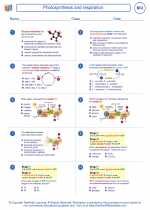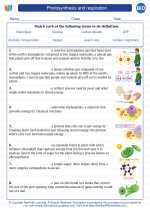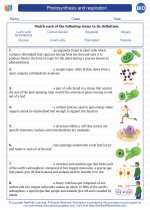Maturation
Maturation refers to the process of development and aging that occurs in living organisms. In biology, it specifically refers to the process of reaching full physical, mental, and emotional development. This process involves a series of complex biological changes that occur over time, leading to the organism reaching its full potential.
Factors Affecting Maturation
Several factors can influence the process of maturation, including genetics, environment, nutrition, and overall health. Genetics play a significant role in determining the pace and pattern of maturation, as certain genes control the timing of developmental milestones. Environmental factors, such as exposure to toxins or stress, can also impact maturation. Adequate nutrition and a healthy lifestyle are essential for supporting optimal maturation.
Maturation in Humans
In humans, maturation encompasses physical changes such as growth in height, development of secondary sexual characteristics, and the maturation of the reproductive system. In addition to physical changes, maturation also involves cognitive and emotional development, including the refinement of cognitive abilities, emotional regulation, and the acquisition of social skills.
Study Guide for Maturation
- Define maturation and explain its significance in the context of biology.
- Discuss the role of genetics in influencing the process of maturation.
- Explain how environmental factors can impact maturation in living organisms.
- Describe the physical and physiological changes that occur during human maturation.
- Discuss the importance of nutrition and a healthy lifestyle in supporting optimal maturation.
- Compare and contrast maturation in different species, highlighting similarities and differences.
Understanding the process of maturation is crucial for comprehending the biological development of living organisms. It provides valuable insights into the intricate mechanisms that govern growth, development, and aging.
[Maturation] Related Worksheets and Study Guides:
.◂Biology Worksheets and Study Guides High School. Photosynthesis and respiration

 Worksheet/Answer key
Worksheet/Answer key
 Worksheet/Answer key
Worksheet/Answer key
 Worksheet/Answer key
Worksheet/Answer key
 Vocabulary/Answer key
Vocabulary/Answer key
 Vocabulary/Answer key
Vocabulary/Answer key
